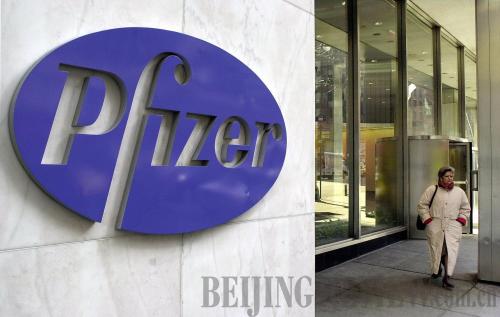|
 |
|
A FOREIGN GIANT: American drug maker Pfizer is implicated in the death of a Beijing resident who participated in a clinical trial of new medicine from the company in 2007 (XINHUA/AFP) |
"It is a lot cheaper to conduct drug trials in developing countries, such as India and China," Wang said. "The compensation when an accident occurs is much lower than that in developed countries, and they can find a huge number of subjects, especially rural residents, who have seldom received medical treatment before."
Make or break
Statistics from China's drug safety regulator show there are on average more than 300 new drugs invented each day by Chinese pharmaceutical companies and there is a great demand for pharmaceutical test subjects.
In August 2002, Beijing-based China-Japan Friendship Hospital became the first Chinese hospital to publicly recruit test subjects. Hospitals in Shanghai, Nanjing in Jiangsu Province and Hangzhou in Zhejiang Province followed.
"Many people think test subjects in clinical trials are like lab rats. This prejudice stops many people from participating," said Jiang Xiangjun, a doctor at Qingdao Hospital in Shandong Province. In 2005, Qingdao Hospital became the first hospital in Shandong to conduct clinical trials of pharmaceuticals.
"Before a new medicine is put on the market, it has to go through testing on animals and human beings," said Jiang, who added that for the testing on human beings, they first test on healthy people and then on patients. "But now in many cases, only patients who are at the verge of death are likely to accept experimental drugs as a last hope."
A patient surnamed Shao with acute cirrhosis of the liver tried an experimental treatment for cirrhosis-related accumulation of fluid in the abdomen in September 2011 with two other patients.
"I was desperate and would have tried anything, so I didn't hesitate when the doctor suggested I take an experimental drug," Shao said. He had already written his last will and testament and asked his family to make funeral preparations, but he made a nearly complete recovery in only 10 days. Now he is back to his normal life and plans to drive around the country on his own.
Liu Zhigang has taken part in testing of hepatitis B treatments for four years. "To be frank, I participated partly because I could get free treatment," said Liu, revealing orthodox treatments left him nearly penniless.
"Economic concerns are the main motivation for test subjects," Jiang said. Actually, the fact that drug companies pay for healthy people to get involved has made participation in clinical pharmaceutical trials a part-time job for some people, if not a career.
Yu Po, a 29-year-old man from Taian, Shandong Province, first learned about clinical trials at Ganji.com, a popular job posting website, and applied without hesitation, not entirely aware of what he was signing up for.
Near the end of 2010, the Beijing Proswell Medicine Co. offered Yu the opportunity to earn 10,000 yuan ($1,609) in a 100-day trial of an experimental anti-tumor medicine.
Only two minutes after being injected with a 2-mg dose of the medicine, Yu's body reacted with cardiac arrhythmia, headache, thirst and a fever of 38 degrees Celsius.
"I did more than 50 EKGs (electrocardiograms) within two months, and none showed that I was as healthy as before," Yu said. "Those drugs that we tried may not show side effects that quickly and obviously, but as time passes by, subjects might find that they are not as healthy as before."
"In China, laws and regulations on human test subjects are still in chaos," said Fan Haoxin, Executive Vice Secretary General of the National Association of Health Industry and Enterprise Management. "The latest regulation in this field is the September 2009 Good Clinical Practice for Drugs. It claims that the test subjects can get compensation for damages caused during clinical trials, but doesn't clarify who will be responsible to pay or how much the test subjects can get."
Email us at: yuanyuan@bjreview.com | 